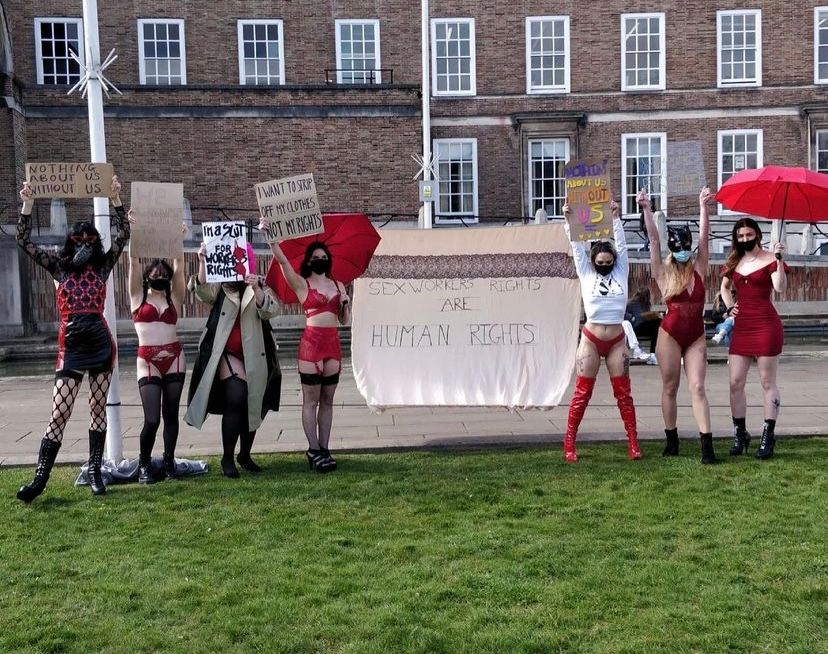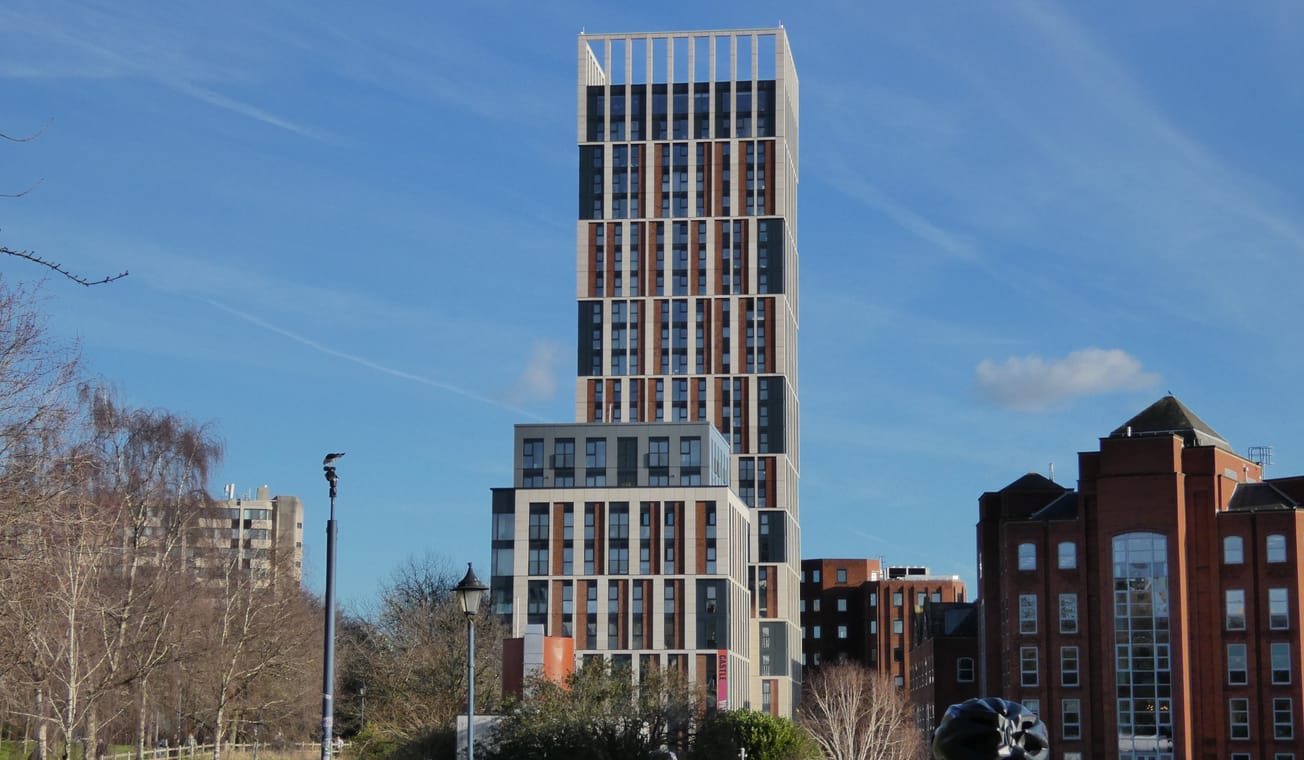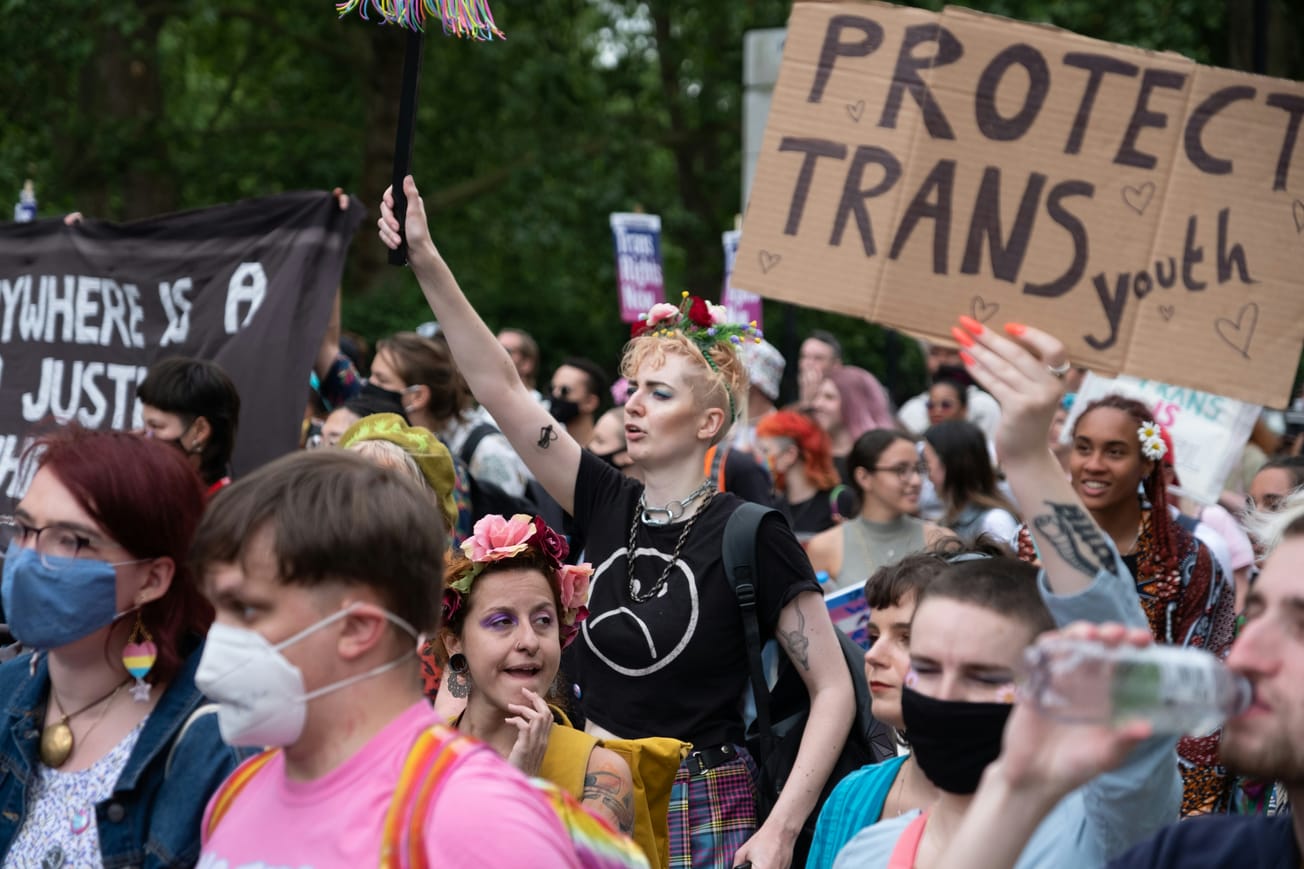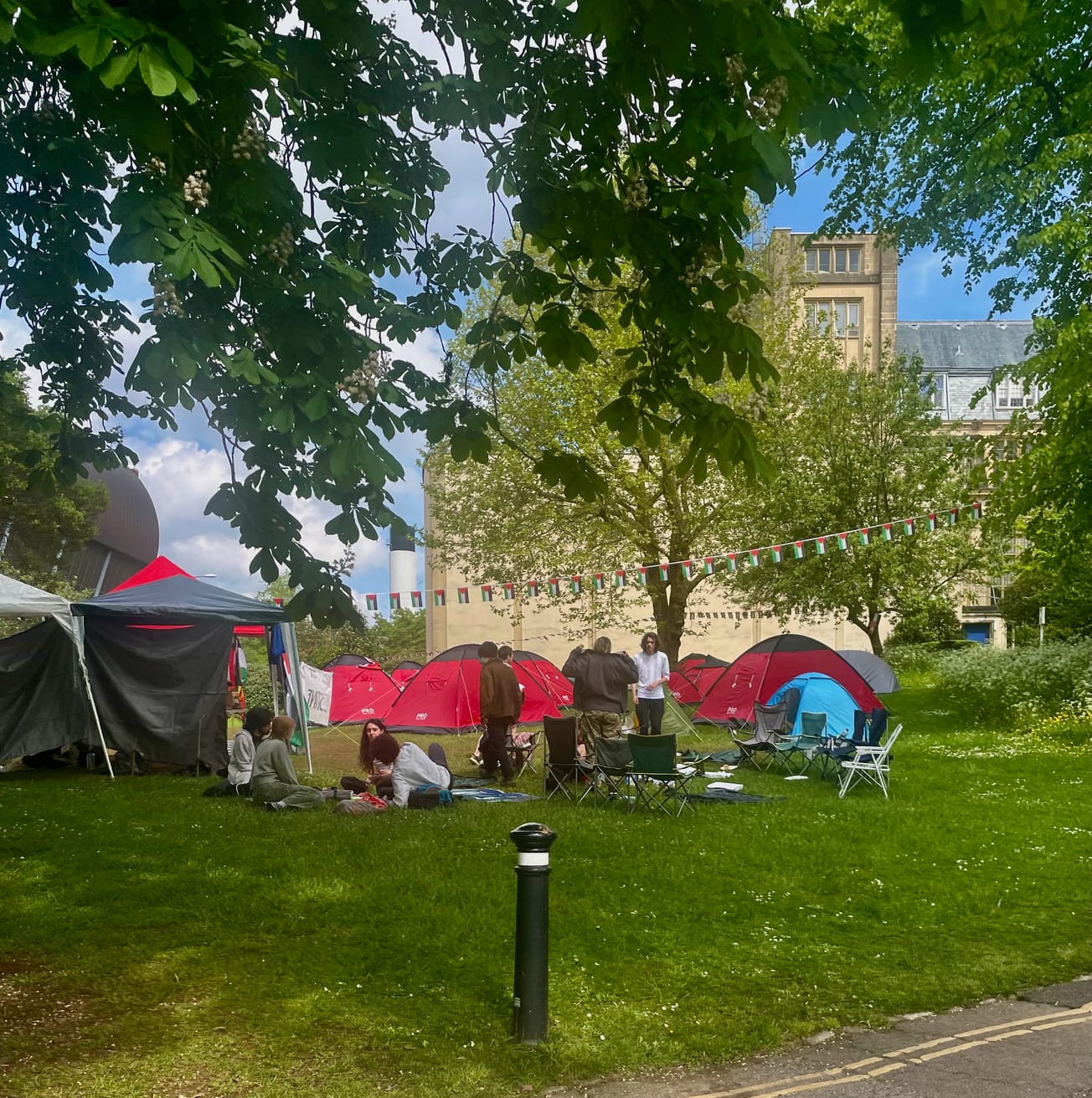By Allegra Letts, Features Digital Editor
As part of the 2021 December print, Epigram investigated the impact of the proposed Nil-Cap policy on sex workers in Bristol following a BSWC talk hosted by the Young Greens.
In light of this year’s recent proposals by Bristol’s local government to reduce the number of strip clubs in the city from two to zero, Bristol Sex Workers Collective’s own, Amelie and Audrey, speak out about the proposed policy implementations and the Labour Party’s position on sex workers’ rights. The members of the collective presented their case in a talk hosted by the Bristol Young Greens’ Society, educating a small crowd on everything from the different forms of legalisation for sex work across the globe, to their stance on the ‘nil cap’ policy for strip club closures, backed by Bristol Labour party mayor Marvin Rees.
Amelie, who is a stripper at Urban Tiger (one of the clubs at risk of closure under the proposed policy’s implementation) described the proposal as an ‘attack on sex workers’ rights from the Labour Party’. The radical policy effectively puts Bristol at the frontline of a number of cities (such as Exeter and Chester) which are using municipal equality laws to crack down on the sex trade and stripping, along with putting it on track to becoming one of the densest urban cities to ban strip clubs and lap-dancing in the UK.
If the policy comes to fruition, strip clubs Urban Tiger and Central Chambers will be unable to renew their license for the next year. During their talk, Amelie and Audrey highlighted the fact that the closure would put over one hundred employees - from dancers to bar staff - out of a job, and, according to Audrey, would likely ‘push stripping underground’. This would effectively leave sex workers unprotected by licensing laws currently implemented by Sexual Entertainment Venue (SEV) policy today.
"The closure would put over one hundred employees - from dancers to bar staff - out of a job."
Bristol’s current SEV policy was pushed through in 2011, following England’s implementation of Article 27 in 2010 onto the Policing and Crime Act (2009). The policy currently enforces a number of strict restrictions on the management of strip clubs; demanding annual license renewals, no-contact rules between strippers and customers, and the insistence that clubs must not be located anywhere near places of worship, schools, and residential areas. These are just a few of the many rules SEV clubs must abide by in order to continue legalised operation in the city, of which neither of the clubs have breached since licensing.
Despite the Bristol City Council’s public consultation of 2019 displaying that 66 per cent of local residents were happy with the operation of SEVs in the area, Bristol mayor Marvin Rees has begun the process to close down strip clubs as promised within his 2016 election pledges. Garnering further support from Bristol Labour party members Thangam Debonairre, Karin Smyth and Debby McCarthy, the nil-cap policy has emerged by way of delivering on promises made in 2016.
The nil-cap policy has not just received the support of local Labour MPs. In fact, a number of local feminist groups in Bristol have been the main sources of pressure in the anti-strip club campaign, including the Bristol Women’s Voice and, most notably, the Bristol Women’s Commission - founded by Mayor Rees. According to these groups, ‘the Council has legal obligations to have due regard to the need to eliminate discrimination and harassment of women, and to advance equality of opportunity for women as well as to foster good relations between men and women. Strip clubs stand in the way of this.’
The Bristol Women’s Commission and the Bristol Women’s Voice make the case in favour of the closure of SEVs by arguing that men’s use of sexual entertainment increase the likelihood of domestic violence being committed against women, relying on a study by Farley et al, named ‘Comparing Sex Buyers With Men Who Do Not Buy Sex: New Data on Prostitution and Trafficking’, which showed a positive correlation between men who solicit prostitution and the sexual objectification and violence against women. However, Audrey and Amelie presented compelling evidence against over-reliance on this singular study. Firstly, correlational results do not equate to a causation. Secondly, the study had multiple self-confessed limitations.
In an open letter against the anti-SEV policy, it was stated that the case made by the Bristol Women’s Commission was ‘simply not true.’ ‘Avon and Somerset Police’s Cumulative Impact Assessment showed that from 2018-2020 neither venues were a source of concern for sexual assault in or around their premises.’ During their talk, Audrey and Amelie also raised concerns about the credibility of support from the Bristol Women’s Commission, who receives funding from the Bristol City Council.
‘Avon and Somerset Police’s Cumulative Impact Assessment showed that from 2018-2020 neither venues were a source of concern for sexual assault in or around their premises.’
Equally, Audrey made an important case during the BSWC talk, arguing that ‘closing down licenced strip clubs does not mean that the industry will disappear: it only deregulates it and makes the work riskier for those who do it.’ By pushing the sex industry underground, sex workers are left without a legal framework to hold strip club owners, managers, and consumers accountable. And this is only one source of concern for sex workers. Ultimately, Amelie and Audrey highlighted an important point in their talk, stating that ‘strippers should not be blamed for male violence’.
According to documentation by the Human Rights Watch, criminalisation also creates an environment where ‘police officers harass sex workers, extort bribes, and physically and verbally abuse sex workers, or even rape or coerce sex from them.’
Similarly, the Human Rights Watch also found evidence that suggested that ‘criminalization makes sex workers more vulnerable to violence, including rape, assault, and murder, by attackers who see sex workers as easy targets because they are stigmatized and unlikely to receive help from the police.’
'Strippers should not be blamed for male violence’.
The issue of stigmatisation was further explored by Amelie and Audrey in their talk as a potential explanation for the anti-SEV policy proposals, which they consider to transcend the issues of gender-based violence. Amelie and Audrey stated that the social issue of ‘whorephobia’ must receive greater awareness and education, directing students to read ‘Revolting Prostitutes’ as a source of illumination on the industry.
Overall, the issue is one of great contention throughout Bristol. With the local government’s avid support for the closure of strip clubs, and the progressing resistance of sex workers and their supporters, the issue is likely to gain traction for years to come.









